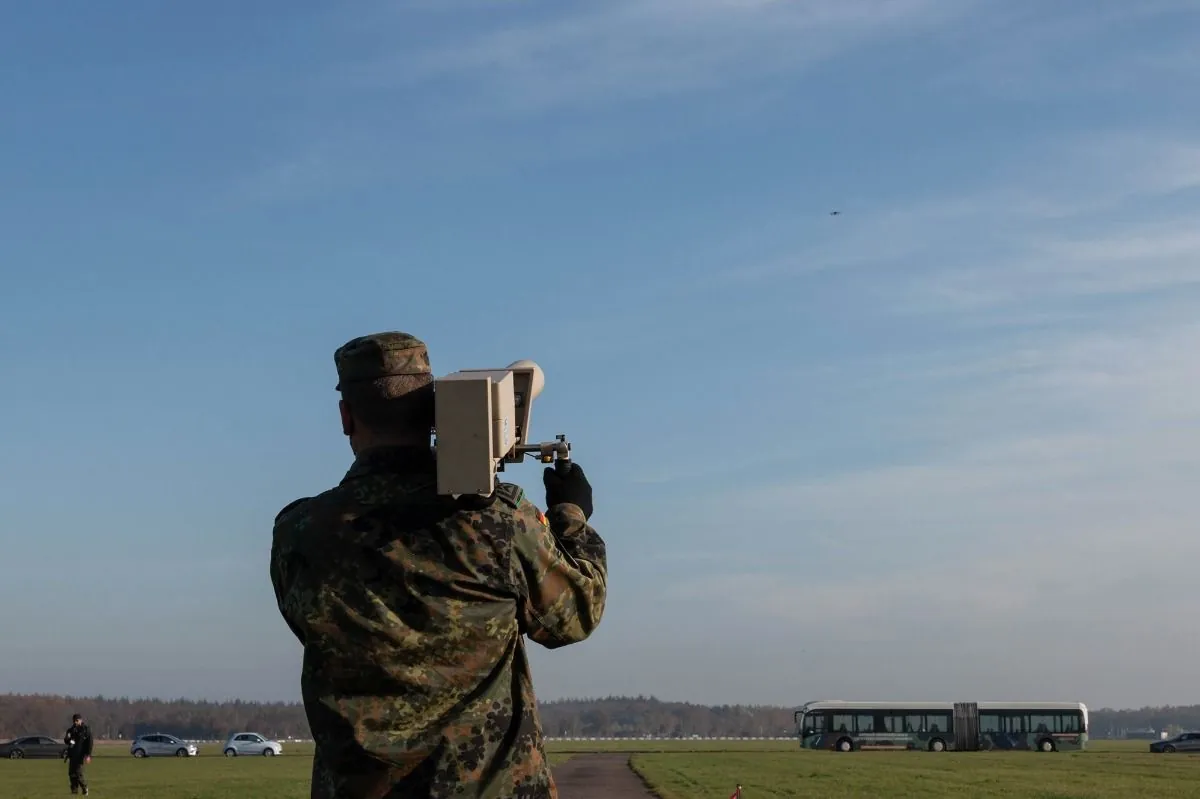In a significant development, NATO concluded an extensive anti-drone exercise, marking Ukraine's inaugural participation. The event, which took place at a Dutch military base, brought together more than 20 nations and 50 companies to evaluate state-of-the-art systems for drone detection and countermeasures.
The 11-day exercise, concluding on September 20, 2024, showcased the alliance's commitment to addressing the rapidly evolving drone threat. This focus comes as unmanned systems continue to play a crucial role in modern warfare, particularly evident in the ongoing conflict in Ukraine.
Matt Roper, chief of the Joint Intelligence, Surveillance and Reconnaissance Centre at NATO's technology agency, emphasized the alliance's serious approach to the drone threat. He stated, "This is not a domain we can afford to sit back and be passive on."
The exercise's timing coincided with recent events highlighting the critical role of drones in warfare. Just two days prior, a substantial Ukrainian drone attack reportedly caused significant damage to a major Russian arsenal. The following day, Vladimir Putin announced Russia's plans to increase drone production tenfold, aiming for nearly 1.4 million units in the current year.
NATO's increased focus on drone threats stems from their widespread use in surveying battlefields and destroying targets. This proliferation has prompted experts to warn that the alliance needs to rapidly enhance its capabilities in drone warfare. A report from the Center for European Policy Analysis in September 2023 cautioned that NATO possessed insufficient drones for high-intensity conflicts against peer adversaries.
The exercise demonstrated various counter-drone technologies, including electronic warfare techniques such as jamming. However, a Ukrainian defense ministry technology developer, identified only as Yaroslav, noted that electronic warfare is less effective against long-range reconnaissance drones. He revealed that Ukraine has developed kamikaze drones as a cost-effective alternative to missiles for countering such threats.
"You need to run fast. Technology which you develop is there for three months, maybe six months. After, it's obsolete."
This statement underscores the rapid pace of technological advancement in drone warfare, presenting ongoing challenges for defense strategies.
The NATO anti-drone exercise, now in its fourth year, has evolved to address emerging threats. Claudio Palestini, co-chair of a NATO working group on unmanned systems, highlighted the adaptation to trends such as the weaponization of FPV (first-person view) drones, originally designed for civilian racing.
As NATO continues to refine its approach to drone threats, the alliance draws on a rich history of technological innovation. Since its founding in 1949, NATO has consistently adapted to new challenges, from traditional warfare to cyber threats. The organization conducted its first major cyber defense exercise in 2008, demonstrating its commitment to addressing emerging security concerns.
The involvement of Ukraine, a NATO partner country since 1994, in this exercise signifies the deepening cooperation between the alliance and the nation currently facing Russian aggression. This collaboration allows NATO to gain valuable insights from Ukraine's real-world experience with drone warfare.
As drone technology continues to advance at a rapid pace, with milestones such as the first transatlantic drone flight in 1998 and record-breaking endurance flights, NATO's focus on counter-drone capabilities becomes increasingly crucial. The alliance's efforts in this domain will play a vital role in shaping future defense strategies and maintaining collective security in an era of evolving threats.
